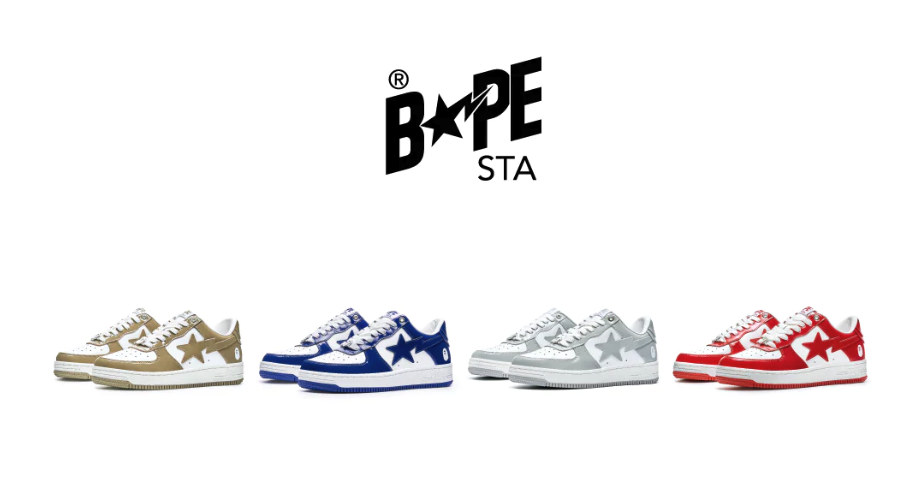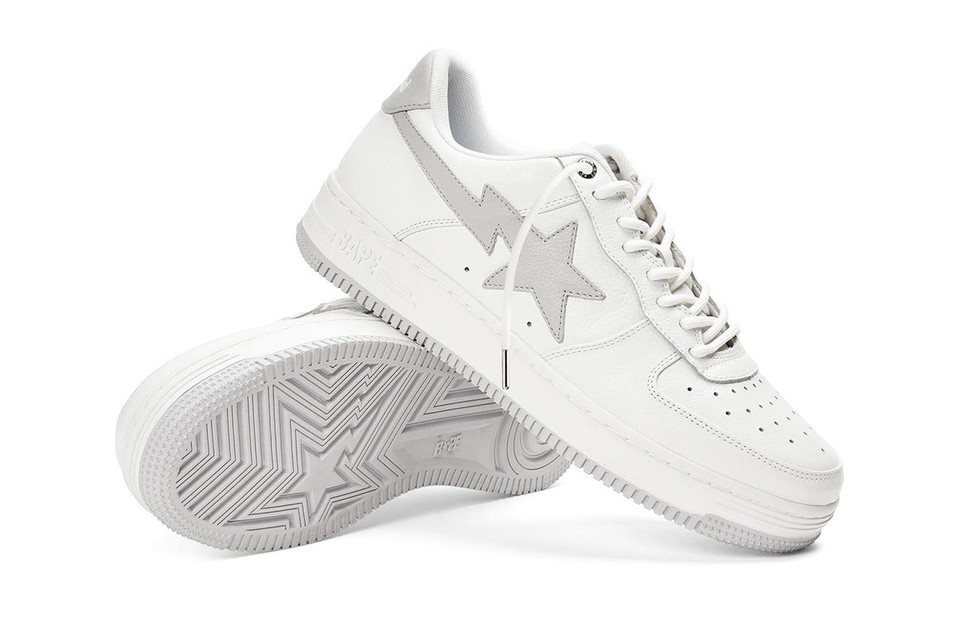Nike has been aggressive in the courtroom over the last couple of years regarding bootleg versions of its iconic designs, mainly the Air Force 1 , Air Jordan 1, and Nike Dunk. The latest brand to face off against the Swoosh is the originator of bootleg the trend for many, A Bathing Ape, aka BAPE. The Japanese fashion brand gained increased notoriety in the 2000s for its Air Force 1 knockoff, the Bape Sta. The official BAPE website calls the silhouette an “iconic sneaker that symbolizes A BATHING APE.” 
According to a report by Reuters, the significant increase in BAPE releases since 2021 caused Nike to act now. Before its recent surge, Nike described BAPE releases as “sporadic.” That appears to answer the decades-old question of why Nike hasn’t gone after BAPE legally. The mystery of why Nike never tried to sue BAPE grew as the Swoosh went after smaller brands like Warren Lotus, John Geiger, and Kool Kiy in recent years. The lawsuit calls out the near verbatim” copies of the Air Force 1 (Bape Sta), Air Jordan 1 High (Court Sta), and Dunk (Sk8 Sta.)
 Founded by Tomoaki Nagao, aka Ngo, in 1993, BAPE launched the Bape Sta in 2000, gaining a big fanbase amongst sneakerheads and hip-hop artists like Pharrell, The Clipse, Kanye West, Lil’ Wayne, Soulja Boy, and more. Ngo sold the brand to Hong Kong fashion conglomerate I.T Limited in 2011, a move that was the end of an era for many fans. While BAPE continued to push out products in the 2010s, it regained mainstream popularity in recent years thanks to a new roster of collaborators like JJJJound and OVO, as well as re-releasing classics like its famed Marvel editions.
Founded by Tomoaki Nagao, aka Ngo, in 1993, BAPE launched the Bape Sta in 2000, gaining a big fanbase amongst sneakerheads and hip-hop artists like Pharrell, The Clipse, Kanye West, Lil’ Wayne, Soulja Boy, and more. Ngo sold the brand to Hong Kong fashion conglomerate I.T Limited in 2011, a move that was the end of an era for many fans. While BAPE continued to push out products in the 2010s, it regained mainstream popularity in recent years thanks to a new roster of collaborators like JJJJound and OVO, as well as re-releasing classics like its famed Marvel editions.
Stay tuned for the latest details in this decades-in-the-making case between a sneaker giant and sneakerhead favorite.


